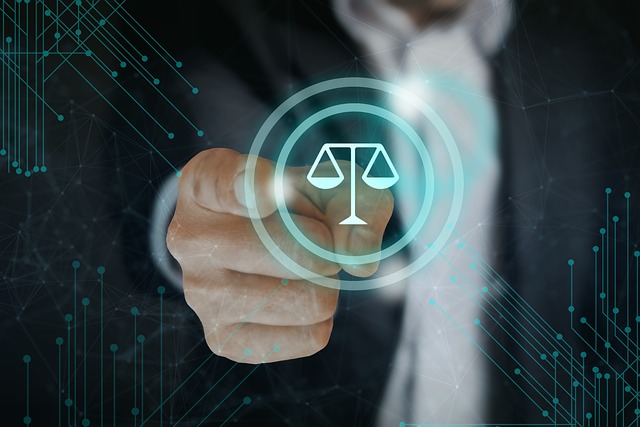International law stands as one of the cornerstones of global governance. It aims to provide a unified framework to regulate relations between states, promote peace, and uphold justice. From mediating conflicts to combating climate change and regulating trade, international law impacts nearly every facet of intergovernmental relations. But as the world shifts in unprecedented ways—from technological revolutions to a resurgence in power struggles—the role and effectiveness of international law face mounting challenges. What is the future of international law in today’s rapidly evolving geopolitical landscape? That’s the question we’ll explore in this blog.
Join us as we trace the evolution of international law, spotlight its current challenges, and discuss the emerging reforms that aim to shape its future trajectory.
A Historical Overview of International Law
Understanding international law requires a look at its long, complex history. The origins of international law can be traced back to antiquity, when early treaties governed relations between empires such as the Egyptians, Assyrians, and Greeks. However, the modern concept of international law began to crystalize in the 17th century with the emergence of state sovereignty and the development of principles governing warfare and diplomacy.
The work of legal scholars like Hugo Grotius, often referred to as the “Father of International Law,” laid the foundation for many modern legal principles. His seminal work, De Jure Belli ac Pacis (On the Law of War and Peace), argued for universal natural laws that could guide interactions between states, even during conflict.
Fast forward to the 20th century, two world wars shook nations into action. The League of Nations was formed in 1920 as an early attempt to foster global cooperation, though it ultimately failed to prevent World War II. After the war, the establishment of the United Nations (UN) and the International Court of Justice (ICJ) signaled a renewed commitment to building a rules-based international order. This era also saw the creation of countless international agreements, treaties, and institutions designed to address issues from disarmament and human rights to environmental sustainability.
While these frameworks have governed global relations for decades, the question arises—are they resilient enough to meet evolving challenges?
Current Challenges Facing International Law
Despite its achievements, international law faces substantial challenges in the contemporary world. Here are some of the most pressing issues:
1. National Sovereignty vs. Collective Governance
One of the foundational principles of international law is state sovereignty—the right of states to govern themselves without external interference. However, this principle often clashes with the growing need for collective governance on global issues. For instance, climate change, pandemics, and international crime require unified, cooperative responses that sometimes clash with states’ unwillingness to cede control to external bodies. Russia’s annexation of Crimea and China’s growing assertiveness in the South China Sea showcase instances where power politics override international legal norms.
2. Technological Advancements Creating Legal Gaps
From cyber warfare to artificial intelligence (AI) and the militarization of space, rapid technological advancements are outpacing the development of international legal frameworks. How do we regulate nonstate actors engaging in cyberattacks? What about AI-based weapon systems crossing ethical boundaries during conflicts? The lack of comprehensive international agreements on technology-related issues leaves significant gray areas open to exploitation.
3. Noncompliance and Lack of Enforcement Mechanisms
Unlike domestic law, which has clear enforcement structures, international law often lacks the teeth to ensure compliance. Institutions like the International Criminal Court (ICC) operate on voluntary cooperation, which powerful nations can easily ignore. For example, the ICC has struggled to hold major powers accountable for alleged war crimes, while global penalties for treaty violations often come down to nonbinding resolutions or sanctions.
4. Global Power Dynamics and Unilateralism
Rising nationalism, populism, and power struggles between global superpowers present another challenge. When powerful nations unilaterally withdraw from international agreements—as seen with the United States exiting the Paris Agreement under a previous administration—it weakens collective action and undermines international legal frameworks.
5. Human Rights in an Evolving World
While substantial progress has been made in human rights law, new challenges like digital privacy, data protection, and mass surveillance are putting pressure on existing conventions. Additionally, human rights abuses in conflict zones often go unpunished, questioning the efficacy of international courts and tribunals.
Future Trends and Possible Reforms in International Law
For international law to remain effective, it must evolve. Here are some future directions and reform opportunities that could shape its future:
1. Strengthening International Institutions
Global institutions like the UN, ICC, and World Trade Organization (WTO) need structural reforms to enhance their credibility and enforcement capabilities. Increasing representation for emerging economies and smaller states could democratize decision-making processes and ensure fairer governance outcomes.
2. Developing Legal Frameworks for Emerging Technologies
To address threats posed by cyber warfare and AI, nations must work collectively to draft new treaties and agreements. The establishment of “digital Geneva Conventions” has been proposed to govern cyberspace, ensuring that technology is used responsibly and ethically on the global stage.
3. Empowering Regional Legal Systems
Regional legal frameworks, such as the European Court of Human Rights or the African Court on Human and Peoples’ Rights, are playing a crucial role in addressing region-specific challenges. Scaling up similar institutions across Asia and Latin America could foster localized governance models that complement global frameworks.
4. Linking International Law with Sustainable Development Goals (SDGs)
The UN SDGs present a universal blueprint for addressing global challenges like poverty, inequality, and climate change. Aligning international legal mechanisms with these goals could provide the motivation and accountability needed to drive real-world progress.
5. Encouraging Nonstate Actor Participation
The internet era has significantly empowered nonstate actors, from multinational corporations to NGOs and grassroots movements. Engaging these stakeholders in international legal frameworks can bridge governance gaps, particularly in areas like climate action or human rights advocacy.
6. Advocating for Collective Global Leadership
Revitalizing international law will require political will and collective leadership. Diplomatic efforts can encourage nations to recommit to multilateralism, emphasizing that global challenges require global solutions.
Why the Survival of International Law Matters
The relevance of international law transcends legal theory—it is integral to achieving global peace, justice, and prosperity. Without these frameworks, the world risks descending into unchecked power struggles, where might makes right.
To law students, international legal scholars, and policymakers reading this, a call to action becomes evident. By exploring, challenging, and contributing to the reforms mentioned above, you play a vital role in shaping the future of global governance.
While much uncertainty looms, one thing remains clear—international law is not just a reflection of the world as it is, but a vision of the world as it could be.

